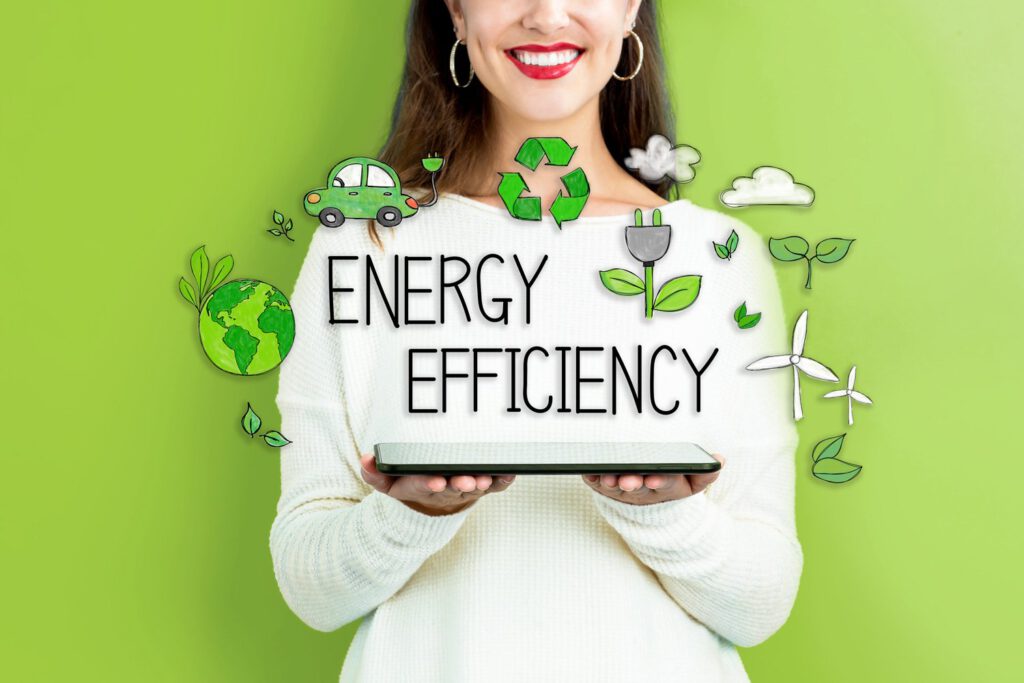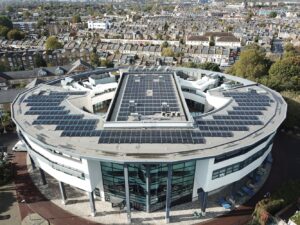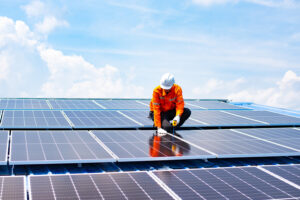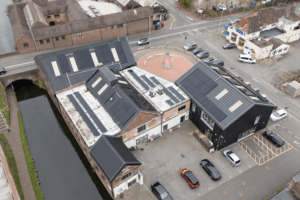Energy efficiency is a hot topic, as the world gradually implements more ways to source energy from cleaner sources. Over a third of energy is provided to the industrial sector – and in 2019, the UK business sectors relied on a giant 195.3 million tonnes of oil for power. Making a global switch to cleaner energy isn’t going to happen overnight, but we can all do our bit to make our businesses energy efficient, whether you’re running a small/medium family run business or a corporate giant.
Being more energy efficient will strengthen your brand reputation, and makes a business more attractive for prospective talent, clients, and partnership opportunities. People want to work with companies who are doing their bit to be greener. This is evident through recent survey findings which have shown that 40% of millennials take into consideration their potential employer’s sustainability ethos before deciding to work for them. Advocating greener solutions really can help your business maintain its reputation whilst saving money and energy!
Blissful ignorance is no longer an option and lacking energy-saving habits can cost more money as a business expands. That’s why, if you’re a small/medium business, it’s heavily recommended to get into the hang of increasing your energy efficiency early on. It’s always a good idea to get comfortable with energy-saving habits from the get-go and being as resourceful as possible with your energy output to keep a minimum wastage. Not only is this beneficial for your business’ company wallet, but it helps to reduce any unnecessary wastage of energy. We look at some simple energy-saving (and cash-saving) things to consider when improving your business’ energy efficiency, and how solar installation could be your next greatest asset!
Choose suppliers who are environmentally aware
Working with environmentally conscious supply chains creates a greener synergetic business relationship.
When making the preliminary decisions to go into business with a particular supply chain, you might want to ask specific questions on your Pre-Qualification Questionnaire which reveal how environmentally aware the company are. This could look at their history of environmental legislation compliance or checking if they use an EMS, like an ISO 14001 to manage their environmental impacts. Ticking all the environmental boxes shows that you’re both on the same page and benefits the reputation of all parties involved.
LED Lighting
Installing LED lighting into your building is the most energy efficient method of electrically lighting your office or premises. It’s always good to let as much natural light into the building. Modern architecture keeps energy efficiency in mind, so most new office blocks tend to allow as much natural light in as possible to minimise the usage of electrical lighting. But obviously, older buildings don’t quite have this luxury of lots of natural light so it’s good to invest in some energy saving alternatives.
Turning lights off when you’re finished in a particular room and automating your light systems are all well-known ways to save energy too. But it’s easy to forget sometimes, so it might be worth sticking a few posters as a reminder.
Working from home
The volume of employees who are working from home has soared dramatically since COVID. The steep popularisation of work-from-homers has meant that businesses are saving loads of energy with this lower demand for electrical output. Hybrid or remote working situations means you don’t have to pay out quite as much on energy bills to power the premises.
Is your office equipment energy efficient?
And then, of course, there are the textbook tips for keeping your energy usage down. These are things everyone knows, but perhaps forget or aren’t in the habit of doing.
Advocating these habits to your workforce can make huge savings and reduce your energy output considerably. For example
- Switching off computer monitors that are not in use (this can save approximately £50 per computer monitor, per year)
- Not leaving equipment switched on overnight and getting into the habit of switching things off when the day is over. Alternatively, set your computers to power saving mode so that they switch off after a certain period of inactivity
- Install power timers into equipment, so that devices are switched on and off as the working day begins and ends
- Keep on top of equipment maintenance. If your equipment is well maintained, it will last longer and checking it can help improve the efficiency of the output
- Don’t print things that you don’t need – to save paper and energy
- Keep refrigerators as cold as they need to be, but don’t force them to be colder as this increases their energy output as they are continuously running 24/7
- Replace your disposable plastic cups for mugs and reusable cups
Tax cuts on solar and EV charging: green incentives
A green incentive that was recently announced by the government has allowed companies to now claim a 130% super deduction tax cut on all machinery and plant which qualify under the scheme. Solar and EV charging are also implementations which apply to this. This means that for every £1 invested in solar or EV charging, 25p is deducted from the profit margin, meaning your taxes will be considerably lowered. It’s a highly attractive scheme for many companies, and if you’d like to take advantage of it then it’s a good idea to act soon – as the scheme ends in March 2023.
Solar efficiency
Going solar has an endless array of benefits anyway, but in terms of efficiency, it can be easily optimised using a solar battery. Saving energy in a solar battery can save up the energy that isn’t used, increasing your business’ efficiency even further! This means you wouldn’t need to rely on the national grid whatsoever and you could label your business as completely self-sufficient. Plus, considering the super-deduction scheme, it’s a no brainer!
To find out how solar could help make your business more energy-efficient, get in touch with Kembla for more information.
Start Your Journey to Renewbles Today
Our mission is to lower your carbon footprint through a pain-free experience.
Get a quote





